
Find out about your own medical history.
You can learn a lot of information from genetic testing and talking with family members.
NEXT: MEDICAL HISTORYFor U.S. Residents Only

Incidence and impact
The exact incidence of ASMD is unknown, but has been estimated at 1 in 250,000 in the general population
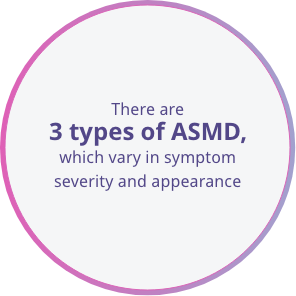
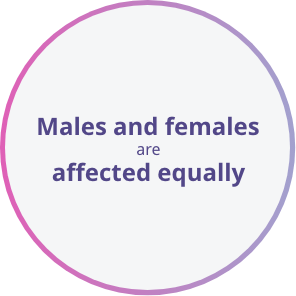

ASMD=acid sphingomyelinase deficiency.
Common signs and symptoms of ASMD
ASMD occurs due to a deficiency of the ASM enzyme, which breaks down a fatty substance in cells called sphingomyelin (sfin-goh-my-uh-lin). Because there is not enough ASM, sphingomyelin may build up in organs such as the liver, spleen, and lungs—resulting in the symptoms of ASMD. Each person’s experience with the disease may be different.
Protruding abdomen due to enlarged liver and/or spleen
Coughing and difficulty breathing
Abdominal pain and diarrhea
Easy bruising and bleeding
Symptoms of ASMD overlap with other conditions
Many symptoms of ASMD mimic other conditions like blood cancers and diseases of the heart and lungs. Certain ASMD symptoms also overlap with Gaucher disease type 1, another rare, genetic disease that worsens over time.
Delays in diagnosis are common due to this symptom overlap between ASMD and other conditions. Your doctor may test for other diseases to ensure that you receive an accurate diagnosis.

If 1 person in a family is diagnosed with ASMD, other family members may also have the disease. For that reason, understanding how ASMD is passed down in families is important.
How is ASMD passed down in families?
ASMD is caused by changes in a gene called SMPD1. Genes are passed down from parent to child. For ASMD to be passed down, 2 copies of the altered SMPD1 gene are needed—1 from each parent.
A child is a “carrier” for ASMD if they inherit just 1 copy of the altered SMPD1 gene. They will not have ASMD and will not experience symptoms, but may pass the 1 copy of the altered gene on to future children.
Inheritance of ASMD
The chances of inheriting ASMD are dependent upon the parents’ disease status—unaffected, unaffected carrier, or affected.


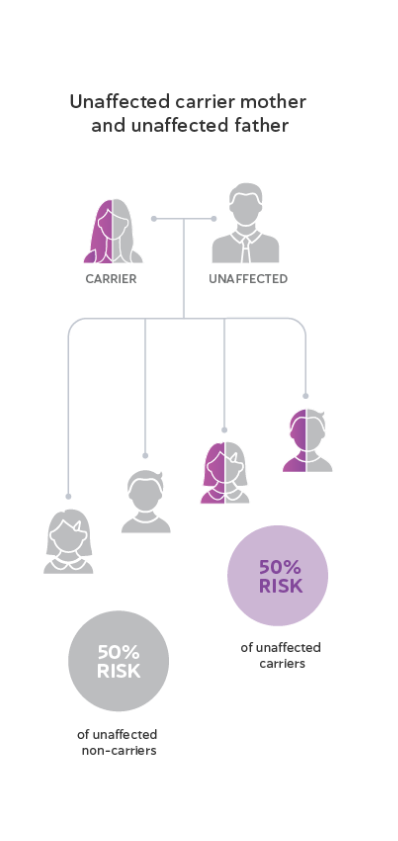
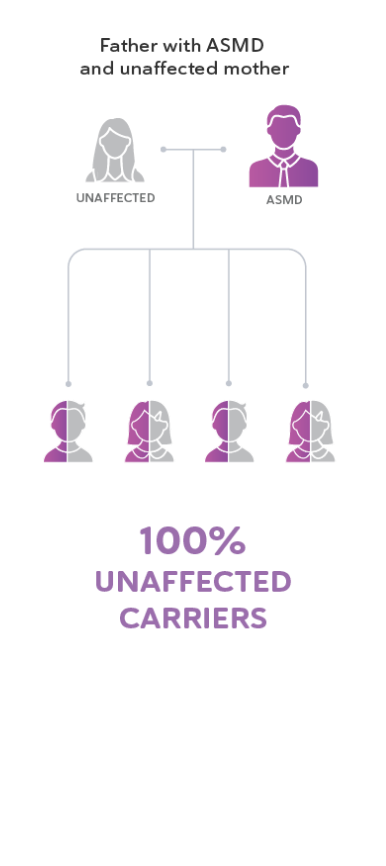
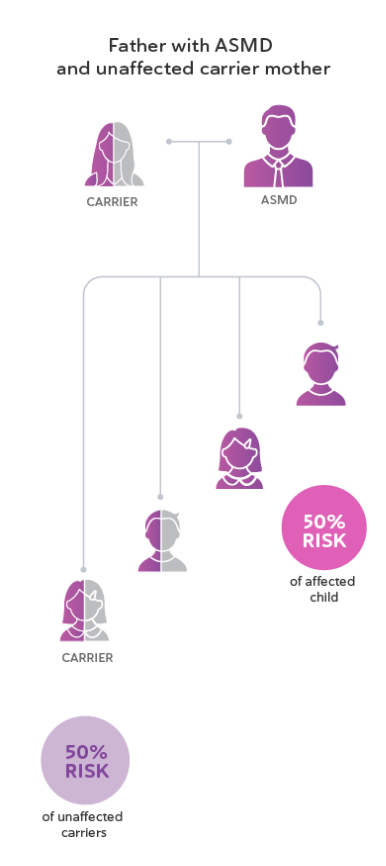
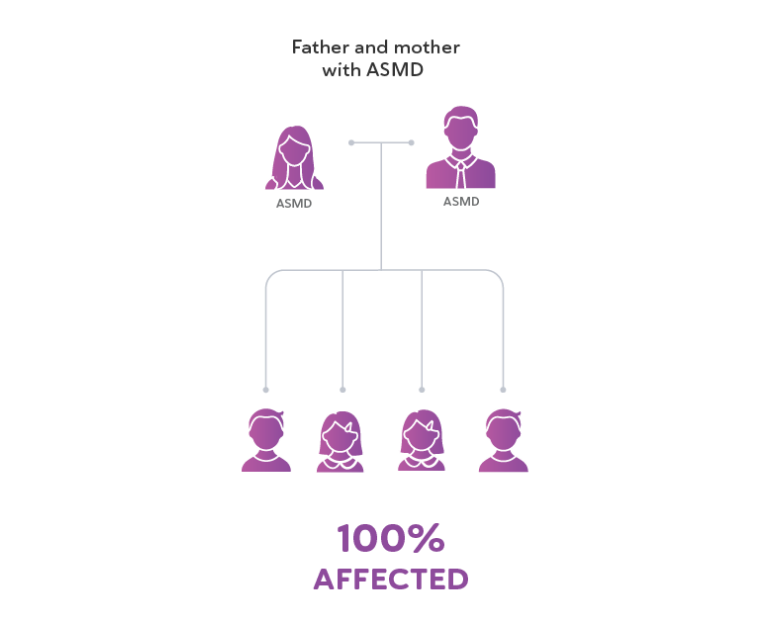

Testing is the only way to know if you or your family members have ASMD. If a member of your family has been diagnosed with ASMD, ask your doctor about family screening.
Learn More
Find out about your own medical history.
You can learn a lot of information from genetic testing and talking with family members.
NEXT: MEDICAL HISTORY